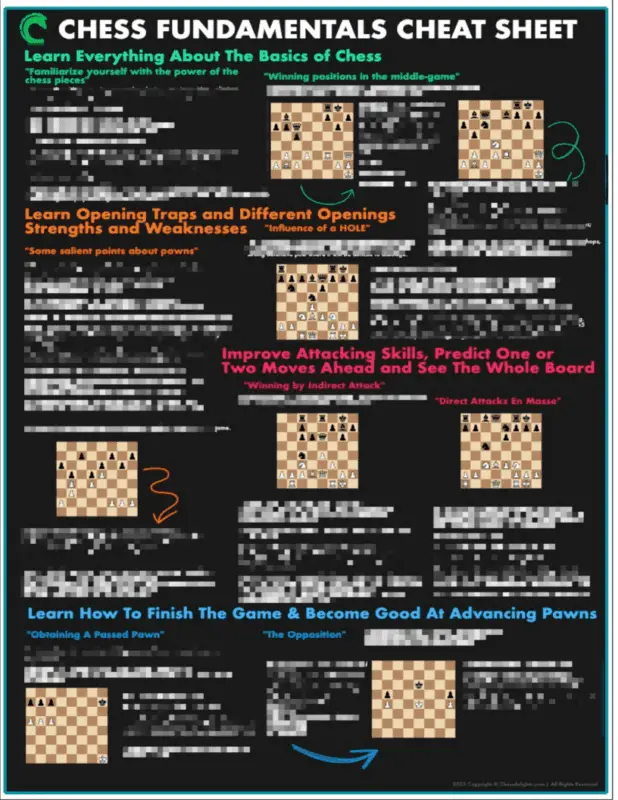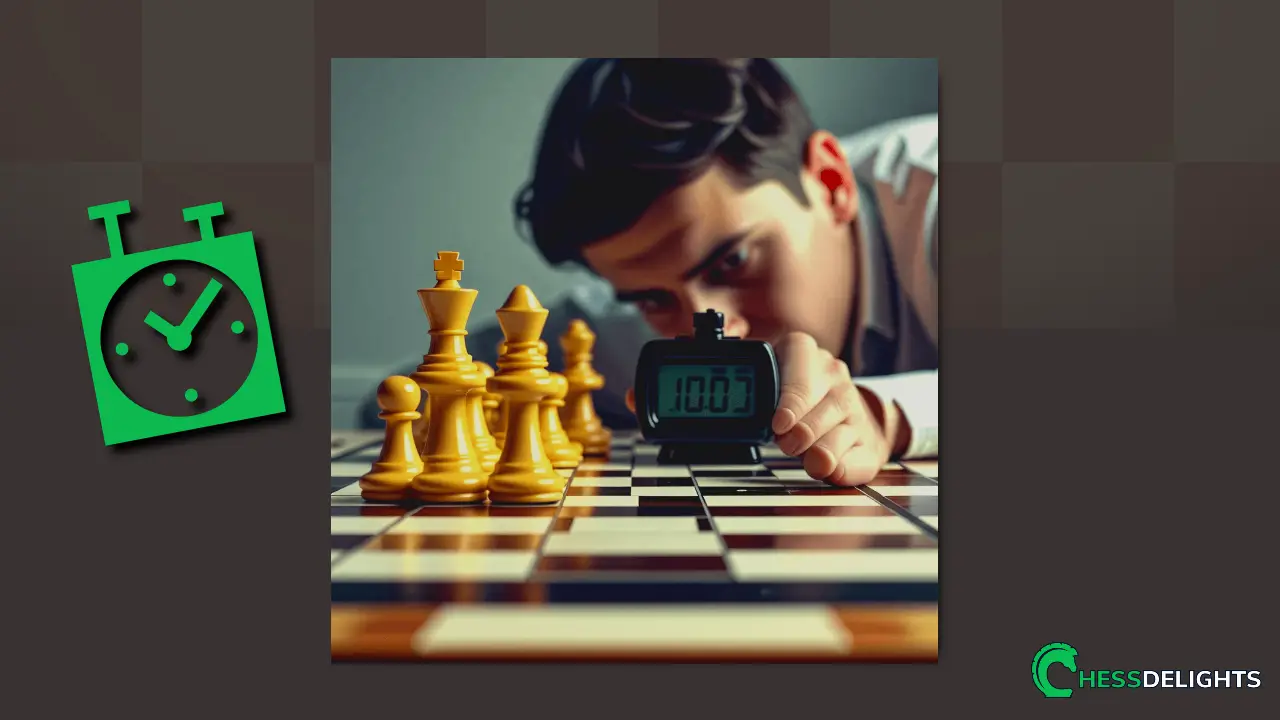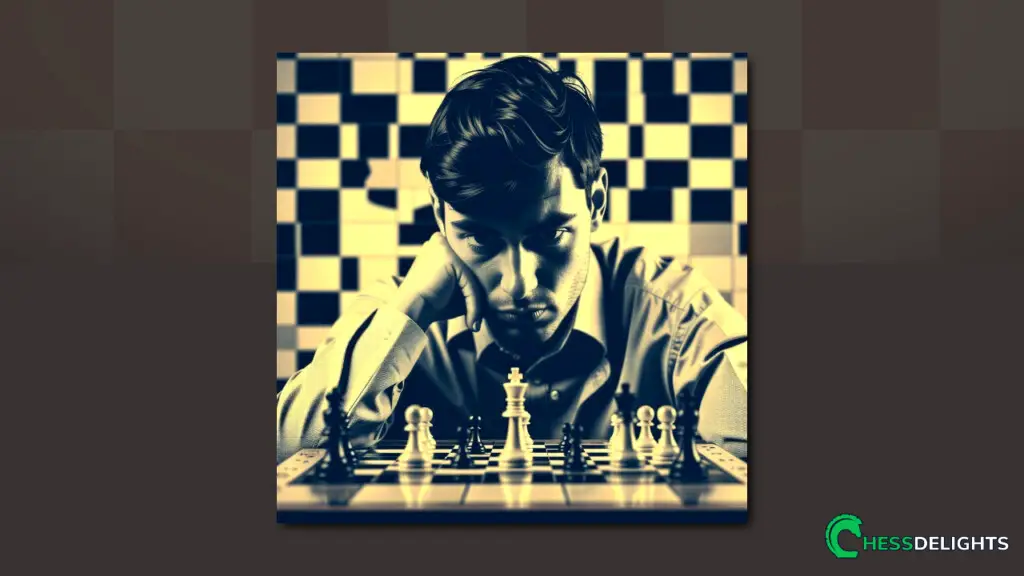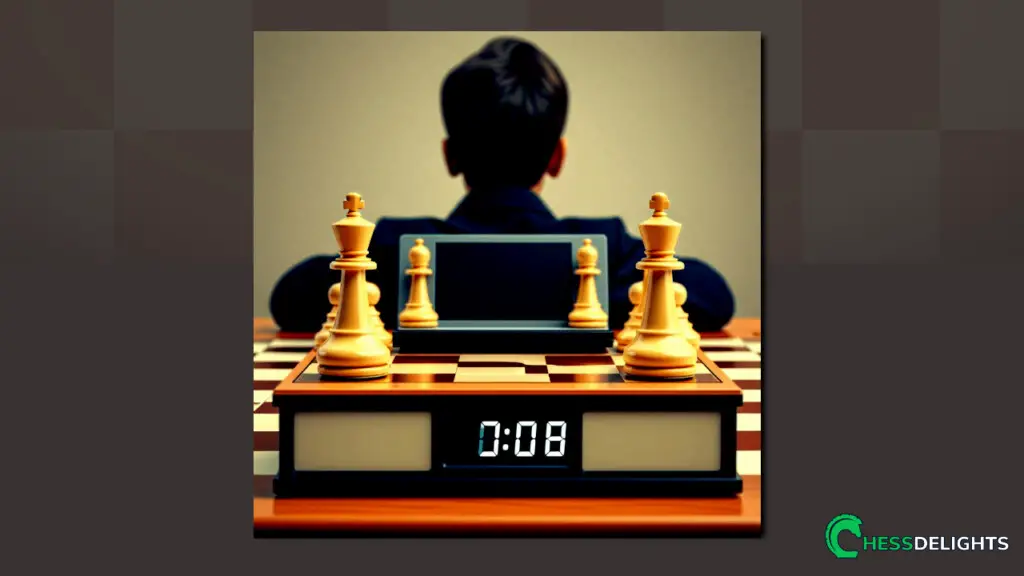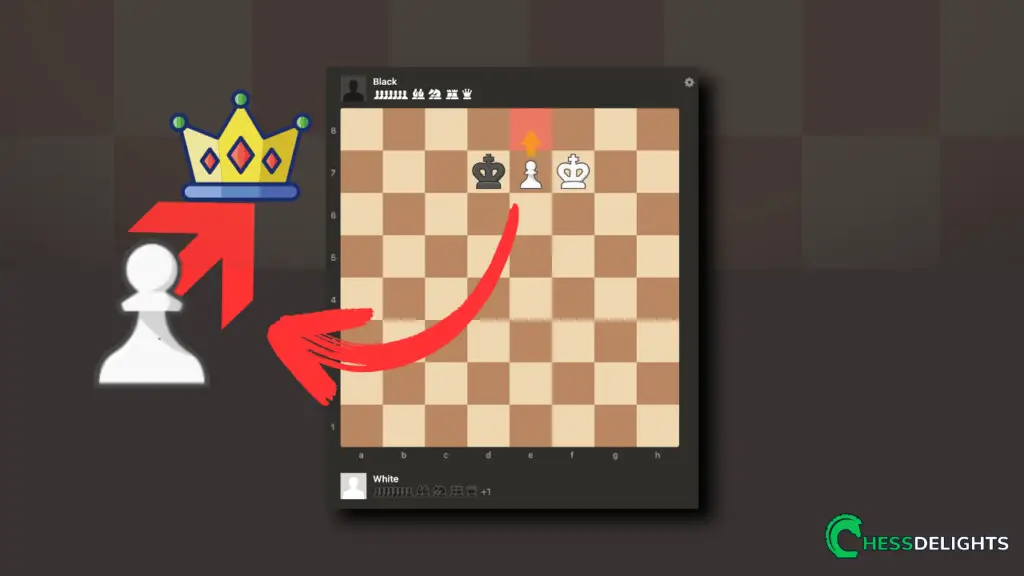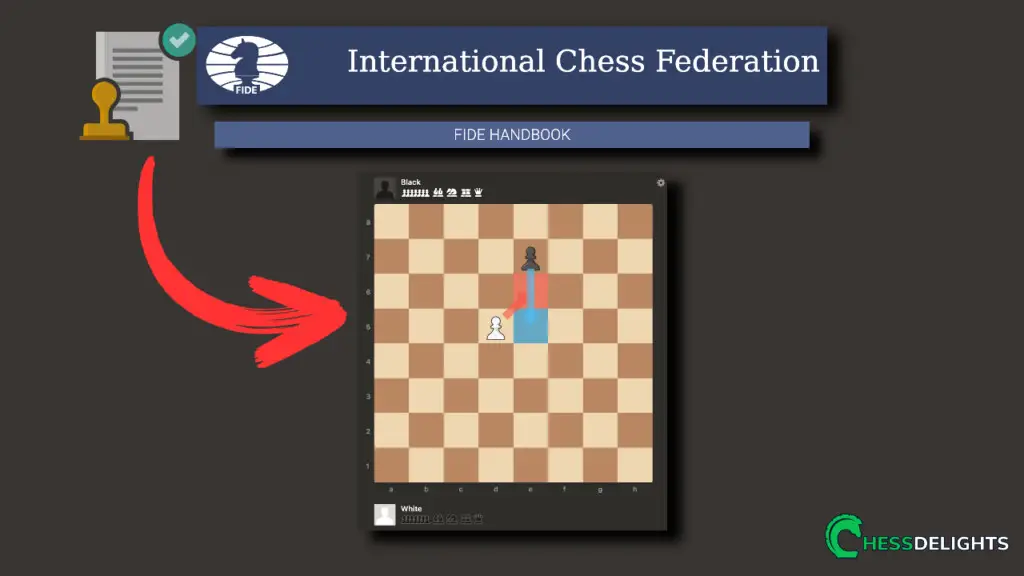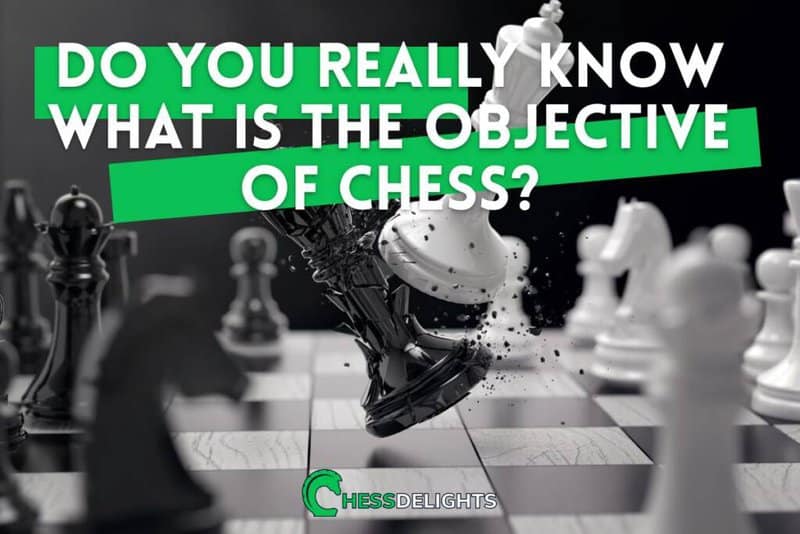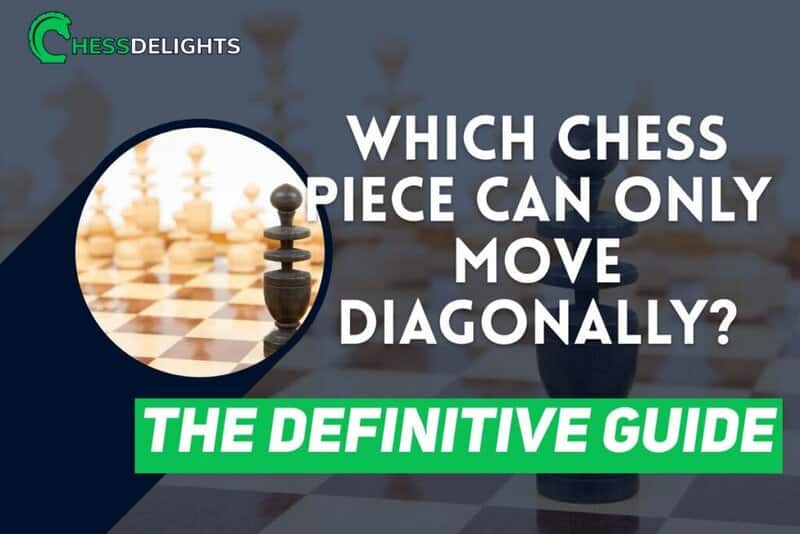A chess clock is a two-faced clock used in competitive chess to control the time spent by each player for their moves. Each player has a dedicated clock face, and the clock is paused when one player completes a move by pressing a button, which also starts the opponent's clock.
The rationale behind using a chess clock is to prevent excessive thinking time and to ensure the game progresses at an appropriate speed. According to the rules set by the World Chess Federation (FIDE), players are required to use the same hand to make their move and press the clock.
This rule is to prevent any unfair advantage that might be gained by keeping the hand on the clock or by pressing the clock before completing the move.
And if you don't already know, capturing a piece must also involve using only one hand. Violations of these rules can lead to penalties in official matches. The chess clock is an essential element in competitive chess, marking the transition from an unlimited-time leisurely game to a timed, strategic sport.
Table of Contents
2 Main Purposes Of Tapping A Chess Clock
Tapping the clock in chess serves two main purposes: keeping track of time and implementing strategic play.
Firstly, in tournament play, each player is allocated a specific amount of time to make all their moves. If a player exhausts their time allotment, they lose the game regardless of their position on the board. Therefore, it's crucial for players to manage their time effectively, which includes tapping the clock.
Secondly, the clock can also act as a tool for strategic play. A player can use the clock to put pressure on their opponent. For instance, by making quick moves, a player can force their opponent to think and act faster, possibly leading them to make a mistake.
Conversely, by taking their time over critical moves, a player can use their clock to build tension and force their opponent to overthink the situation.
Recommended Reading: If you want to learn more about fundamentals of chess, read this article.
What are the Rules and Etiquette Regarding Tapping the Chess Clock?
Tapping the chess clock is governed by specific rules and etiquette in the game of chess. According to the rules laid out by the World Chess Federation (FIDE), a player must make their move before tapping the clock with the same hand that moved the piece.
It is also important to tap the clock gently to avoid damaging it or disrupting the game. Excessive force or multiple taps are generally considered disrespectful and poor sportsmanship. The etiquette of tapping the chess clock also includes not letting it distract or disrupt the opponent.
Recommended reading: If you want to read more about the objective of chess, check out this article.
Why The Same Hand?
One question often asked is, why do players hit the clock with the same hand that moved the piece? Wouldn't using the other hand save more time? Interestingly, the answer to this lies in the rules of the game.
According to the rules set by FIDE, the global governing body for chess, “a player must press his clock with the same hand with which he made his move.” This rule prevents players from hitting the clock before they complete a move, which would be unfair to the opponent as their clock starts running before they can make their move.
Can a Player's Strategy Be Affected by When and How They Tap the Chess Clock?
Yes, a player's strategy can definitely be affected by when and how they tap the chess clock. The timing of the tap can be used to put psychological pressure on the opponent, especially if they are running low on time.
Moreover, a player can decide to make quick moves and rapidly tap the clock, forcing the opponent to think and act faster, potentially leading to mistakes. The manner in which a player taps the clock can also send non-verbal signals to the opponent, affecting their mental state and strategy.
What Happens if a Player Forgets or Fails to Tap the Chess Clock?
If a player forgets or fails to tap the chess clock, their clock continues to run, and they lose valuable time for their subsequent moves.
In some instances, if a player doesn't tap the clock after completing their move and the opponent doesn't notice it, the game can proceed with the first player's clock still running.
This can lead to a time forfeiture, causing the player to lose the game regardless of the position on the chessboard.
Can a Player be Penalized for Tapping the Chess Clock Incorrectly or Excessively?
Yes, a player can be penalized for tapping the chess clock incorrectly or excessively. According to FIDE regulations, if a player uses excessive force to tap the clock or continuously taps it without making a move, the arbiter can issue a warning or even impose a time penalty.
In severe cases, the player may be disqualified from the game.
What is the History Behind the Practice of Tapping the Chess Clock in Chess Games?
The use of the chess clock dates back to the late 19th century. Before its introduction, there was no limit to the time a player could take to make a move, leading to extremely prolonged games.
To address this issue, the first chess clock was introduced in a tournament in London in 1883. Over the years, the mechanism of chess clocks has evolved from mechanical to digital, but the practice of tapping the chess clock after making a move remains a fundamental part of the game.
Recommended reading: If you want to read more about valuable chess history, check out this article.
How Does Tapping the Chess Clock Differ in Online and Physical Chess Games?
In physical chess games, players physically tap the clock after making a move. In contrast, in online chess games, the clock is usually tapped automatically when a move is made. Some digital platforms also provide the option for players to manually tap the clock.
While the purpose remains the same, the method of tapping the clock differs due to the nature of the platform.
What Should a Player do if their Opponent is Not Tapping the Chess Clock Correctly?
If an opponent is not tapping the chess clock correctly, the player should promptly bring it to the attention of the arbiter or tournament director. It is crucial to address such issues immediately to ensure fair play and adherence to the rules of the game.
Can Tapping the Chess Clock Affect the Concentration or Performance of the Players?
Yes, tapping the chess clock can affect the concentration and performance of players. It adds an additional layer of pressure and urgency to the game. Players have to balance their focus between the chessboard and the clock, creating a challenging multitasking situation.
Some players may thrive under this pressure, while others may find it distracting or stressful.
Is the Practice of Tapping the Chess Clock Considered a Critical Part of Competitive Chess?
Absolutely, the practice of tapping the chess clock as I've mentioned – is considered a critical part of competitive chess. It introduces a time element to the game, making it not just a test of skill, but also of speed and time management.
The chess clock adds a strategic dimension to the game, making it more complex and competitive. Without the chess clock, a player could theoretically take an unlimited amount of time to make a move, which would be impractical in a competitive setting.
The Role of the Chess Clock in Competitive Play
As a chess enthusiast, I can assure you that time management is a key factor in competitive chess. Tapping the clock is an integral part of this aspect. It's not just about keeping track of the time, but also creating a rhythm and maintaining the pace of the game.
A player who manages their clock efficiently can put pressure on their opponents, forcing them to make quick decisions that could potentially lead to mistakes.
Famous Instances of Clock Tapping
Over the years, there have been numerous historical and noteworthy instances of clock tapping in professional chess matches. These moments have had profound impacts on the outcomes of the games.
For example, the famous World Championship match in 1987 between Garry Kasparov and Anatoly Karpov. In one of the games, Karpov was under severe time pressure and in the heat of the moment, failed to stop his clock correctly, losing valuable seconds. This eventually led to his defeat in that game.
Wrapping Up
The use of the chess clock has transformed the game of chess, adding a new layer of strategy and tension. The act of tapping the clock has become an integral part of the game, regulated by strict rules to ensure fair play.
Understanding the role and rules of the chess clock can greatly enhance your appreciation and understanding of this classic game. So next time you see a chess player tapping the clock, you'll know exactly why they do it!
Try out a game with a chess clock and experience the thrill it adds to the game. Whether you're an experienced player or a beginner, the added dimension of time management will surely elevate your game. Play a game today at Chess.com and see how a clock works in action!
Recommended reading: If you want to learn more about chess clock tournament rules, read this article.
